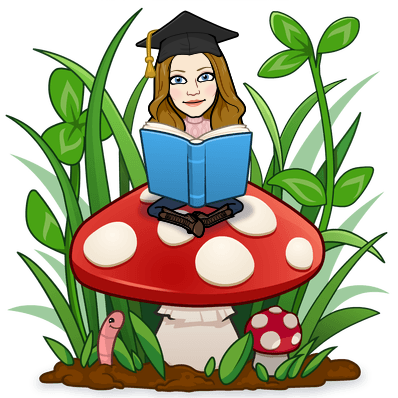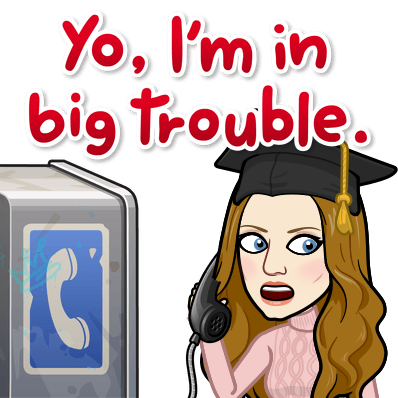On Thursday the 7th of March 2019 it is World Book Day. I don’t know about you, but I love books! I read at least a few pages of a book every single day. What about you? Do you love reading in your language?
Something we do in the UK to celebrate World Book Day is dress our children up as characters from their favourite book. I had lots of lovely ideas for my three year-old daughter, but she decided she wanted to dress up as… Peppa Pig!
Anyway, to celebrate this day of books I have made a list of 10 idioms that feature the word ‘book’… I hope they’re useful!
1. in my book

‘In my book’ means ‘in my opinion’.
For example, ‘A man who hits a woman isn’t a man, in my book.’
2. hit the books

To ‘hit the books’ means ‘to study’, especially to study really hard.
Example: ‘I’ve got an exam tomorrow so I’m hitting the books this evening.’
3. a bookworm

A ‘bookworm’ is someone who loves reading/studying.
Example: ‘I was a bit of a bookworm when I was a kid.’
4. an open book

An ‘open book’ is a person who is easy to understand, a very honest person.
Example: ‘I have no secrets; I’m an open book.’
The opposite of this is a closed book.
Example: ‘I just can’t understand him. He’s such a closed book.’
5. don’t judge a book by its cover

Not being able to ‘judge a book by its cover’ means that you can’t guess what a person is like from their appearance.
Example: ‘I thought that Sarah was really quiet – she looks like a real bookworm. But when we went out the other night she was so loud! I was shocked! I guess you can’t judge a book by its cover.’
6. to read someone like a book

‘To read someone like a book’ means that you know somebody so well that you know what they are thinking or what they are going to do without being told.
Example: ‘You don’t like her, do you? I can tell just by looking at you – I can read you like a book!’
7. in someone’s good books

To be ‘in someone’s good books’ mean that the person is happy with you.
Example: ‘I’m in my mother-in-law’s good books at the moment. I helped her out with some things around the house and now she’ll do anything for me!’
The opposite of this is to be ‘in someone’s bad books’.
8. to take a leaf out of someone’s book

‘Taking a leaf out of someone’s books’ means to act like another person.
Example: ‘You’re so organised! I’ve decided to take a leaf out of your book and buy a diary to write everything down.’
9. by the book

To do things ‘by the book’ means to do things properly, in the correct way; to follow the rules exactly.
Example: ‘You should go with this lawyer – she always does everything by the book so you know there’ll be no problems in court.’
10. to throw the book at

People who do not do things by the book might have the book ‘thrown at’ them! To ‘throw the book at someone’ means to punish them in the worst, harshest way.
Example: ‘Alex got arrested for speeding last night. The police threw the book at him as he’d been caught before so he has to go to court and he might even have to go to prison!’
*Now you try: try to make ten sentences about you or people you know using the above idioms. Good luck!
I hope that these bookish idioms were useful for you!
For World Book Day, tell me your favourite book and/or favourite book character. I hope you have a better favourite character than Peppa Pig!
To let me know, just write a reply below or email me at charlottesenglishlessons@gmail.com. I would love to hear from you!
If you enjoyed these idioms, then come back next week when I will be giving you 10 idioms related to sleep for Sleep Awareness Week!
See you then!

Charlotte XX















 Sorry, this probably isn’t what you want to hear! I know a lot of students find grammar
Sorry, this probably isn’t what you want to hear! I know a lot of students find grammar 






